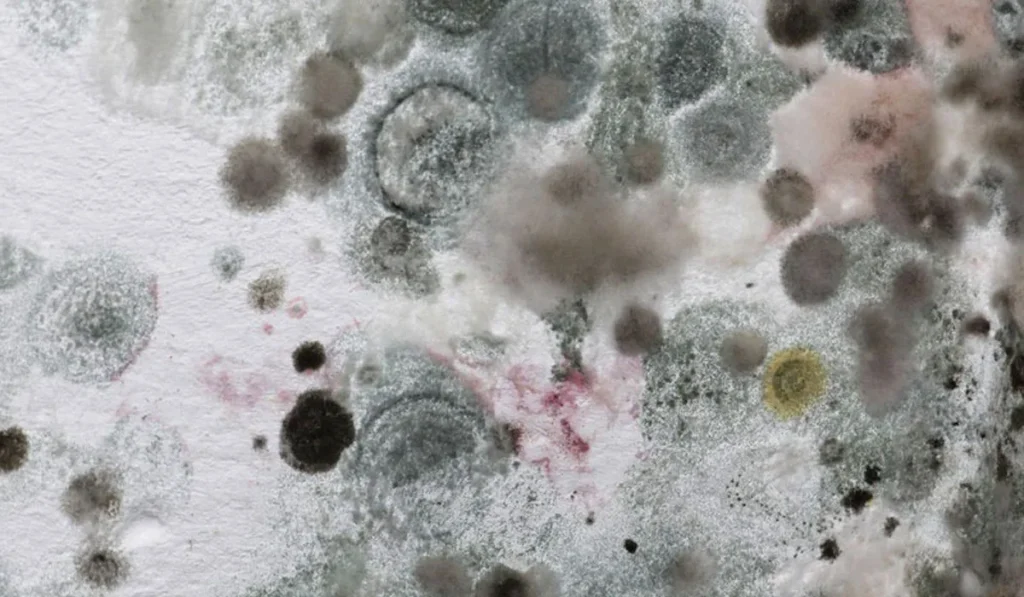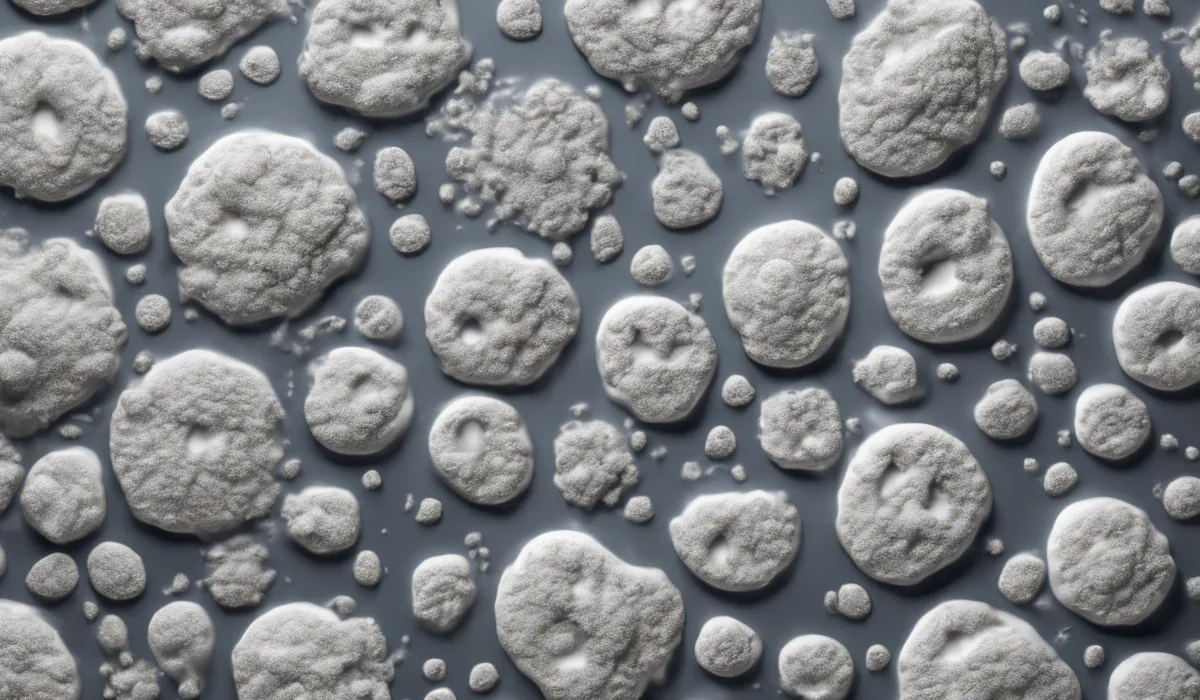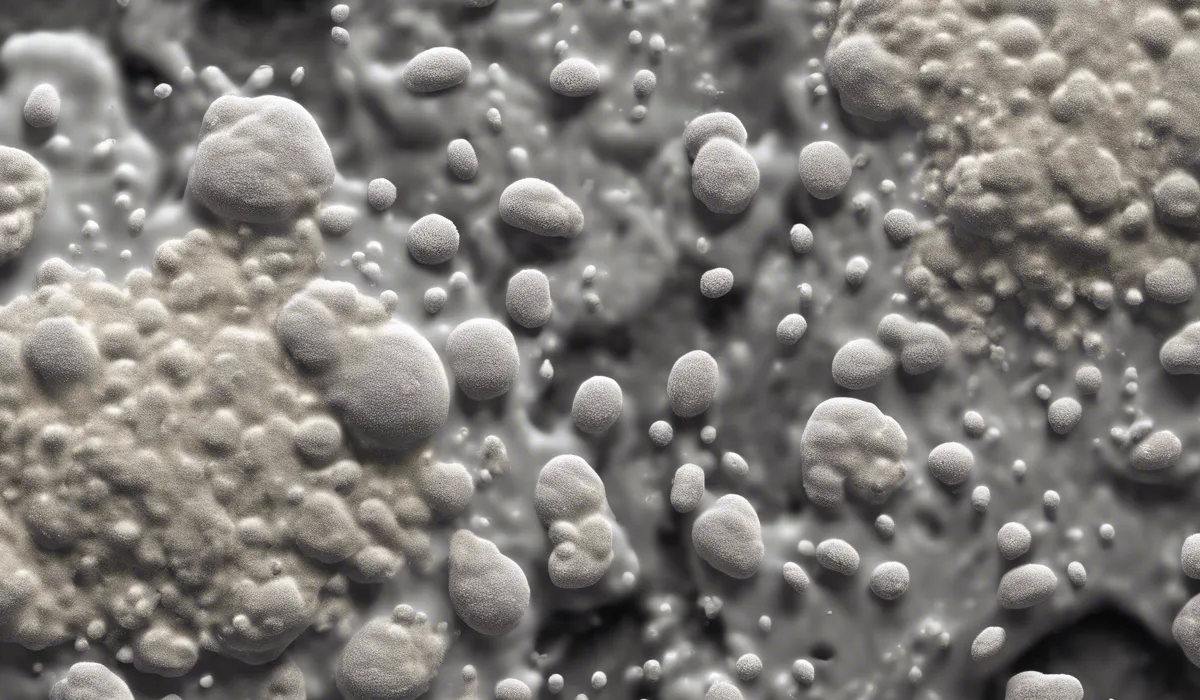Yes, mold can cause allergies. Mold spores trigger allergic reactions when inhaled, leading to symptoms like sneezing, itching, and runny nose. Prolonged exposure may worsen symptoms or lead to more severe respiratory issues.
Understanding Mold and Allergens

What is Mold?
Mold is a type of fungus that can grow both indoors and outdoors. It thrives in warm, damp, and humid environments.
Commonly, mold is found in places like bathrooms, kitchens, basements, and anywhere where there might be water leaks or high humidity.
Molds spread by producing spores that can be inhaled, making them a concern for health, especially for those with allergies.
Allergens and Immune Responses
Allergens are substances that can cause allergic reactions. When someone with an allergy to a particular substance encounters it, their immune system reacts as though it is a threat.
This reaction leads to the production of antibodies, which in turn cause symptoms like sneezing, itching, and a runny nose.
Mold spores are considered allergens because they can trigger these immune responses in sensitive individuals.
Mold Types Causing Allergies
Not all molds cause allergies, but there are several types known for their allergenic properties. These include Alternaria, Aspergillus, Cladosporium, and Penicillium.
Exposure to these molds can lead to allergic reactions in some people. Identifying and controlling these types of mold is crucial for those with allergies.
Mold Spores and Allergies
Mold reproduces through tiny particles called spores that float through the air. These spores can enter our homes through open doors, windows, and even on clothing and pets.
When inhaled by someone with a mold allergy, these spores can lead to allergic reactions. Understanding the role of mold spores is important in managing mold allergies.
The Link Between Mold Exposure and Allergic Reactions

Health Effects of Mold: Research Insights
Scientific studies have shown that exposure to mold can lead to a variety of health problems, especially for individuals with sensitivities or allergies.
Research indicates that inhaling mold spores can cause symptoms such as coughing, wheezing, and nasal congestion.
For people with asthma or other respiratory conditions, mold can exacerbate their symptoms.
Symptoms of Mold Allergies
Common symptoms of mold allergies include sneezing, runny or stuffy nose, itchy eyes, skin rashes, and throat irritation.
For those allergic to mold, these symptoms can appear shortly after exposure and can range from mild to severe, depending on individual sensitivity and the level of mold exposure.
Mold Sensitivity and Allergic Rhinitis
Mold sensitivity refers to individuals who experience allergic reactions upon exposure to mold spores.
This sensitivity can lead to allergic rhinitis, an inflammation of the nasal passages, causing sneezing, itching, and a runny nose.
Recognizing and addressing mold sensitivity is important for reducing allergic symptoms.
Who is Most at Risk for Mold Allergies?
Individuals with existing respiratory conditions like asthma, young children, the elderly, and those with weakened immune systems are more at risk for mold allergies.
It is essential for these populations to minimize exposure to mold to avoid triggering allergic reactions.
Diagnosing Mold Allergies
To diagnose a mold allergy, doctors may use a combination of a patient’s medical history, physical examinations, and tests such as skin prick tests or blood tests.
These tests help determine if someone has an allergic reaction to specific types of mold and guide the best course of treatment.
Prevention and Management of Mold Allergies

Reducing Mold Growth Indoors
Preventing mold growth involves controlling moisture levels in your home or workplace. This can be done by fixing leaks, ensuring good ventilation, using dehumidifiers, and keeping indoor humidity below 50%.
Regularly cleaning and drying damp areas also help prevent mold from taking hold.
Cleaning and Removing Mold Safely
When cleaning mold, it’s important to wear protective gear like gloves and masks. Hard surfaces can be cleaned with water and detergent, but porous materials with mold growth might need to be thrown away.
After cleaning, the area should be dried thoroughly to prevent mold from returning.
Air Filtration and Humidity Control
Using air purifiers with HEPA filters can help remove mold spores from the air in your home.
It’s also beneficial to use air conditioners and dehumidifiers to maintain low humidity levels and prevent mold growth.
Regularly changing air filters in your HVAC system can also reduce airborne mold spores.
Medical Treatments for Mold Allergies
For those with mold allergies, treatments may include antihistamines to relieve symptoms, nasal corticosteroids for nasal inflammation, or immunotherapy (allergy shots) for long-term relief.
It’s important to consult with a healthcare provider for the most effective treatment plan.
Managing Mold Allergy Symptoms
Individuals with mold allergies can take steps to manage their symptoms by avoiding areas with visible mold, using protective gear when cleaning moldy areas, and ensuring their living spaces are well-ventilated and dry.
Staying informed about mold and how it affects health is crucial for those with allergies.
FAQs About Mold Allergies
Can inhaling mold spores cause allergic reactions?
Yes, inhaling mold spores can trigger allergic reactions, such as sneezing, itching, and a runny nose.
What are common symptoms of a mold allergy?
Common symptoms include sneezing, itching, nasal congestion, and a runny or stuffy nose.
Can prolonged exposure to mold worsen allergy symptoms?
Yes, prolonged exposure to mold can worsen existing allergy symptoms and may lead to more severe respiratory issues.
Is it possible for mold to cause severe respiratory problems?
Yes, in some cases, especially for people with chronic respiratory conditions or weakened immune systems, mold can cause severe respiratory problems.
Do all types of mold cause allergies?
Many types of mold can cause allergies, but individual sensitivity varies, and some molds are more likely to cause allergic reactions than others.
Final Thoughts
Mold is a known allergen, with its spores capable of triggering allergic reactions upon inhalation. Individuals may experience a range of symptoms including sneezing, itching, and a runny nose.
If exposure to mold persists, there’s a risk of heightened symptoms and potentially serious respiratory conditions.
